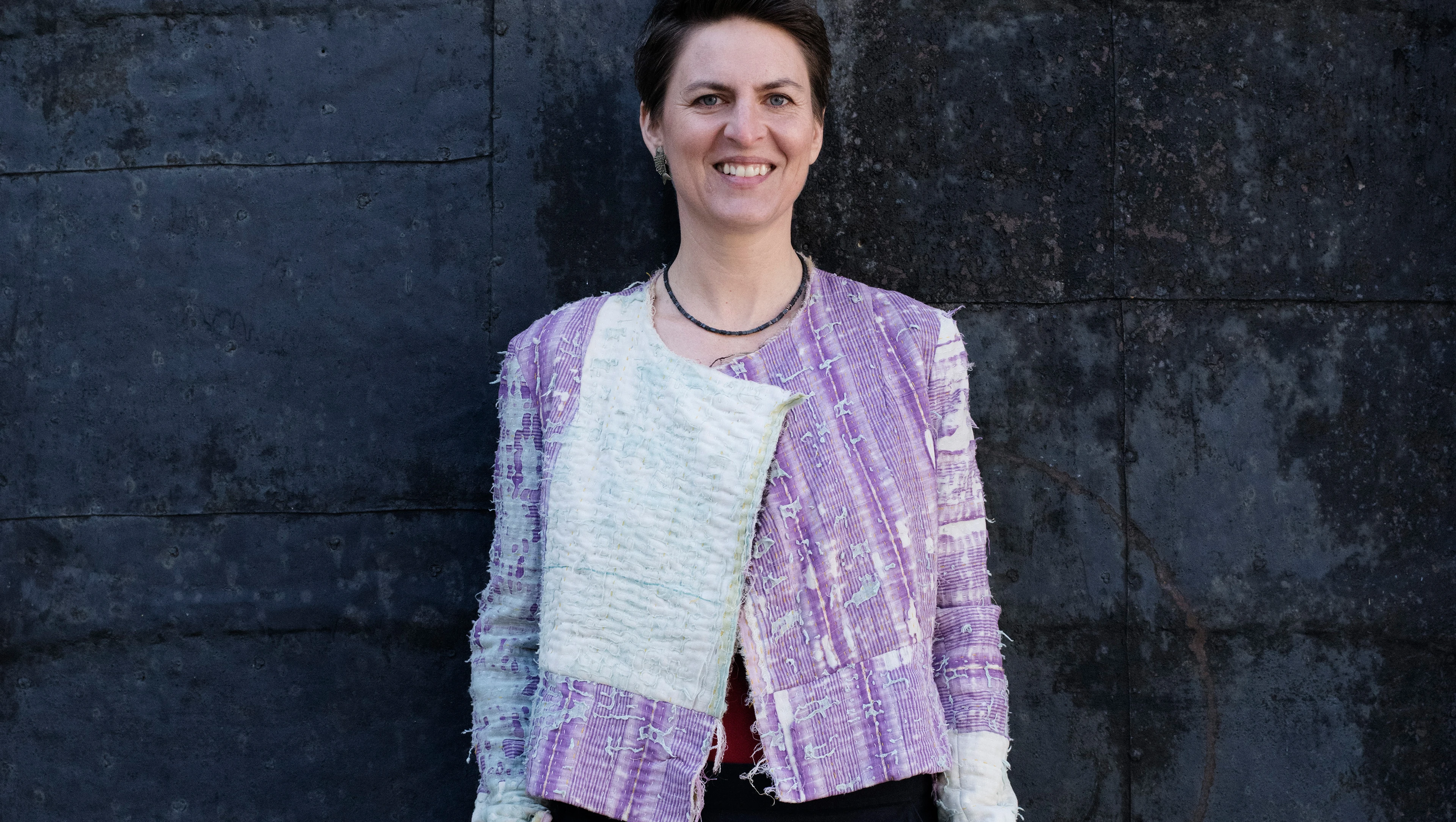 © Copyright: Gerald von Foris
© Copyright: Gerald von ForisArchitecture for a better life - that is Anna Heringer's mission. The architect and honorary professor established the METI School in Rudrapur, Bangladesh, as part of her diploma thesis and won the Aga Khan Award for Architecture in 2007. In 2021, Anna Heringer participated in the international exchange program Erasmus for Young Entrepreneurs, a partner project of UnternehmerTUM, to pass on her entrepreneurial knowledge to the next generation of innovators. We talked to her about the potential of sustainable building and her path to becoming a successful entrepreneur.
You are a successful architect and entrepreneur. How did you get there?
To be honest, I "slid" into it a bit. I did my diploma thesis in architecture at the University of Art in Linz and my project was a school in Bangladesh, which was actually built. Unexpectedly, it became quite a hit, winning several awards, including the Aga Khan Award for Architecture. This gave me the opportunity to add more projects, so I couldn't even imagine working as an employee in an architecture firm. However, during my studies I got to know the processes on building sites in internships, which was an absolutely important experience for me. Of course, self-employment is always a challenge, especially if you swim against the mainstream like I do. But it works! The good thing is: it always goes on somehow and that's also what I pass on in Erasmus for Young Entrepreneurs. If you focus on your own abilities and you give them space, then life opens the doors. But it also takes courage and perseverance. And it always helps to ask yourself, what do I really need to live - and to free yourself from excess. That makes you more flexible.
Responsible use of resources, as well as money, allows us to improve the status-quo so that we can build not only buildings, but communities - in harmony with nature.
Anna Heringer
What vision are you pursuing with your architecture?
My vision and mission is "Architecture is a tool to improve lives." For me, architecture should improve living conditions, even if it often has the opposite effect, i.e. destruction. But since I am an optimist, I am convinced that we as a global community can use architecture better in the future than we do at the moment. Responsible use of resources, as well as money, allows us to improve the status-quo so that we can build not only buildings, but communities - in harmony with nature.
What makes your works so unique?
I always pay a lot of attention to local building materials and resources in the first step. That applies above all to human labor, i.e. craftsmanship. In addition, there is "knowledge" as a global resource that should always be tapped. For this in turn can be applied to local conditions. Simply perceiving what is available locally is the key to resilience, to being independent of external factors. This is exactly the feeling I would like to pass on at Erasmus for Young Entrepreneurs.
Where do you implement your projects?
I work a lot in Bangladesh and Ghana, but also here in Germany in Rosenheim, where we received the 2021 European Bauhaus Award for the expansion of an Ayurveda health center. Regardless of the location, I am committed to my vision of building in a resource-friendly way, no matter how high or low the available budget.
You spent some time living in Bangladesh, India. How did that time influence your later work?
Even before I started my architecture studies, I traveled to India and learned exactly the following there and took it with me: to work with what is available. It was the development aid on the ground that brought me closer to the answer to the question of what happiness means in life. For me it means that everything I do should not only serve me, but above all society.
On your website, you write that sustainability is synonymous with beauty for you. Can you tell us more about that?
Good-looking buildings are a dime a dozen. What I think we need are meaningful buildings that are beautiful from the inside out - not just in an aesthetic sense, but in harmony with people, local society and our environment. That's something you can feel. I want architecture to touch and stimulate. When we implement things with love, we automatically do so sustainably. That's why, for me, beauty is synonymous with sustainability.
What do you think needs to happen for more sustainable building?
We definitely need a readjustment in our economic system. It must not be the case that building with local materials is so much more expensive than with CO2-heavy imported parts. There is still completely wrong investment. The good thing, however, is that we humans have this in our hands and can change it. First of all, there clearly needs to be a CO2 tax. In addition, human craftsmanship should be used differently as a source of energy. People need to be more involved in the construction process, and the vast sums of profit generated by construction projects need to end up more with the people and not just in certain sectors of the economy.
Why did you decide to participate in the Erasmus for Young Entrepreneurs (EYE) program and what was your experience?
At the time, this was initiated by a young architect who really wanted to intern with me. But since I manage so many non-profit projects, I didn't have the budget and infrastructure for an additional person. However, she had already heard about EYE and then it worked out right away with the application. For both of us, the program was an absolutely enriching experience with great exchange and many learnings. I can absolutely recommend it!
Thank you very much for the interview!
Foto: Copyright: Gerald von Foris
























